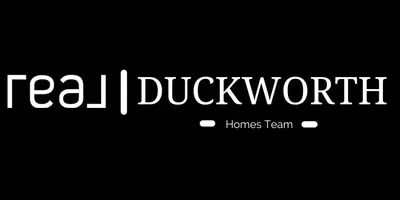Is Purchasing a Fixer-Upper a Good Decision?
Is Purchasing a Fixer-Upper a Good Decision?
Are you pondering the idea of purchasing a fixer-upper home? Here's what you need to understand about acquiring one and whether it's a worthwhile investment.
Purchasing a home is a significant financial commitment and an investment in real estate. If you're prepared to invest additional effort into a property known as a "fixer-upper," available at a reduced market price, then this might be the right choice for you.
A fixer-upper home represents a serious investment because it demands full commitment from the outset. Increasingly, buyers are considering homes that aren't ready to move into, hoping to save money.
With housing prices continuing to climb and limited inventory available, many buyers are coming to terms with the possibility that their ideal move-in-ready home might not be feasible. Over half of potential buyers are open to the idea of purchasing a fixer-upper, with about 73% citing the lower listing prices as a compelling reason.
A fixer-upper is generally less expensive than a ready-to-move-into home, but the costs of renovations and repairs must be considered. There are professionals who can assist in identifying valuable projects to undertake.
What to Know When Considering a Fixer-Upper
Chapters
What Is A Fixer-Upper
Tips for Purchasing a Fixer-Upper
How To Buy A Fixer-Upper
Pros and Cons Of Buying A Fixer-Upper
Should You Buy A Fixer-Upper?
1. What Is A Fixer-Upper
A fixer-upper is typically available at a lower purchase price because it requires significant maintenance after purchase, akin to a foreclosed home. While some fixer-uppers are livable, they often require considerable investment in both structural and cosmetic enhancements.
2. Tips For Buying A Fixer-Upper
Understand the full scope of what you're buying. Properties that need extensive work could end up costing more than anticipated. It's crucial to plan thoroughly, considering everything from your financial situation to the property's location. Buying a fixer-upper is an exciting venture that offers personalization and creativity in a home, but it's vital to consult with a real estate professional to find the right property.
Location and Budget
Always consider the neighborhood's appeal and budget wisely, anticipating costs accurately and planning for unexpected expenses.
Get a Home Inspection
This will help identify any major issues that could become costly.
3. How To Buy A Fixer-Upper
Partner with a real estate agent who has access to comprehensive listings. Ensure a thorough home inspection is done before making a purchase, and realistically assess whether the renovation needs are within your budget and capabilities.
4. Pros and Cons Of Buying A Fixer-Upper
Pros:
Customize to your liking
Potentially less competition
Lower initial purchase price
Quick equity building
Control over renovations
Cons:
Requires substantial upfront cash for renovations
Renovations can be time-consuming
Some improvements do not increase home value
Budgeting challenges
Potential for unforeseen complications
5. Should You Buy A Fixer-Upper?
Purchasing a fixer-upper has surged in popularity as it allows buyers to craft their ideal home while potentially saving money and adding value through improvements. However, these projects are costly and time-consuming, so it's crucial to be sure of your capacity to manage them before committing.
Conclusion
While a fixer-upper can be an excellent investment, it can also turn into a financial drain if not approached with careful planning and realistic expectations. Each fixer-upper is unique, and the decision to buy one should be based on your personal circumstances, financial stability, and home improvement skills. If you're up for the challenge, a fixer-upper can be a rewarding project that allows for significant personalization and value increase.
Why High-Quality Real Estate Photos Are Crucial
Why High-Quality Real Estate Photos Are Crucial
If you're contemplating whether to hire a professional photographer for your home listing, the answer is a resounding yes. Let's delve into why high-quality real estate photos are so essential.
Navigating the home-selling landscape can often feel overwhelming. In the bustling markets of Rhode Island and Massachusetts, homeowners are keen to sell quickly and at a premium. Among several strategies to enhance the home-selling process, professional listing photos stand out significantly.
Effective marketing through stellar photos can significantly increase your home's visibility, attracting more offers and presenting more options to potential buyers. The path to selling your home involves listings, showings, inspections, and contracts, all of which can pile up stress. Professional photos can alleviate much of this pressure by presenting your home in the best light possible. Here are key reasons why investing in professional photos is worthwhile:
Chapters
Digital Dominance in Home Shopping
Inviting Images
Accelerating the Sale Process
Higher Selling Prices
Creating a Stellar First Impression
Essential Home Staging
Avoiding Common Pitfalls
1. Digital Dominance in Home Shopping
Nearly 92% of homebuyers start their journey online, spending a significant portion of their time looking at photos rather than reading descriptions, reports the Wall Street Journal. High-quality images are crucial as they are often the first interaction buyers have with your home. In an era where digital presence matters immensely due to competitive markets, presenting your home in the best light online is non-negotiable.
2. Inviting Images
A professionally staged home, captured with the right angles and lighting, appears more inviting. Such photos highlight the best features of your home, drawing in potential buyers. The emotional pull of visually appealing images cannot be overstated; they create a first impression that could sway buyers toward making an offer.
3. Accelerating the Sale Process
Listings with professional photos receive 61% more views than those without. In a digital age where social media and online platforms are pivotal, high-quality photos can simplify and speed up the listing process, allowing real estate agents to focus on other aspects of the sale.
4. Higher Selling Prices
Homes showcased with professional photos tend to sell at or above the asking price more frequently and 32% faster than those without. Quality imagery not only attracts buyers but can also significantly increase the perceived value of your property.
5. Creating a Stellar First Impression
Real estate agents often rely on professional photos to make a compelling case to potential buyers. The visual appeal can strongly influence a buyer's decision-making process, setting the stage for a quicker and more profitable sale.
6. Essential Home Staging
Before the photo shoot, staging your home effectively can make a dramatic difference. From boosting curb appeal to decluttering and choosing neutral colors, each step ensures that your home looks its best in photos, increasing the likelihood of quick offers.
7. Avoiding Common Pitfalls
Selling a home involves numerous details and potential pitfalls. From underestimating selling costs to neglecting necessary repairs, many sellers make mistakes that can hinder the process. Being aware of these common errors can optimize your selling experience.
FAQs About Real Estate Photography
Why is photography important in real estate?
Quality photos provide a better sense of the property, encouraging buyers to make offers.
How do real estate photos look so professional?
Professionals use expert lighting and camera setups to capture high-quality shots that a smartphone simply cannot replicate.
Do photos really matter in real estate?
Yes, compelling photography is crucial. About 72% of realtors believe that high-quality pictures secure more listings, while 83% of buyers find photos helpful in deciding which homes to visit.
In Conclusion
High-quality listing photos are not just a minor enhancement; they are a critical component of selling your home in today's digital age. Investing in professional photography can significantly ease the home-selling process, drawing more attention to your property and potentially increasing its sale price. If you plan to sell or list your home in Rhode Island or Massachusetts, don't underestimate the power of excellent listing photos. For more assistance, consider contacting a local real estate agency.
Essential Skills for Real Estate Agents in Rhode Island and Massachusetts
Essential Skills for Real Estate Agents in Rhode Island and Massachusetts
What key abilities should every real estate agent possess? Here are 15 crucial skills that ensure a real estate agent is fully equipped to effectively handle the buying or selling of your property.
Choosing the right real estate agent is critical, whether you're buying or selling a home. It’s important to verify that they not only have the necessary qualifications but also the traits of a top-tier professional in the industry.
An outstanding real estate agent is well-rounded, continually refining their skills to advocate for their clients effectively. Beyond advocacy, agents should also serve as knowledgeable advisors.
Here are the top 15 skills every real estate agent should master:
Chapters
Communication
Problem Solving
Negotiation
Time Management
Local Knowledge
Active Listening
Persistence
Marketing Skills
Patience & Empathy
Teaching
Ethics
Tech Savviness
Resilience
People Skills
Networking Skills
1. Communication
Effective communication is essential, particularly in initial interactions. Agents must be prompt in their responses and keep all parties informed throughout the transaction process. This includes regular updates and coordination with other agents, closing attorneys, lenders, inspectors, and various service providers.
2. Problem Solving
Challenges are inevitable. A proficient agent is always prepared with multiple strategies to tackle unexpected issues, whether they relate to property defects, financing setbacks, or appraisal discrepancies.
3. Negotiation
Whether representing buyers or sellers, strong negotiation skills are vital. Agents must strive to secure the best possible terms for their clients to maximize their satisfaction and financial outcome.
4. Time Management
Real estate demands flexibility and efficiency. Agents must adeptly manage their schedules to accommodate showings, offer preparation, and client queries promptly.
5. Local Knowledge
Understanding the nuances of local markets in Rhode Island and Massachusetts can significantly benefit clients. From community features to market trends, local insight is invaluable, especially for those relocating from other regions.
6. Active Listening
An agent’s ability to truly listen and understand client needs is fundamental. This ensures that clients’ preferences and objectives are prioritized throughout the buying or selling process.
7. Persistence
Determination is crucial, especially when negotiating or addressing client concerns. Persistence in communication and problem-solving can make a significant difference in achieving client goals.
8. Marketing Skills
Effective marketing goes beyond listing a property. Agents should leverage various platforms to attract potential buyers and engage with the community to enhance their listing’s visibility.
9. Patience & Empathy
Real estate transactions can be emotionally charged. A patient and empathetic approach helps agents support their clients through ups and downs, providing comfort and guidance when needed.
10. Teaching
Educating clients about the real estate process is crucial, especially for first-time buyers or sellers. An informative agent demystifies the complexities of real estate, empowering clients to make informed decisions.
11. Ethics
Integrity and loyalty are non-negotiable. Adhering to ethical standards and maintaining confidentiality are essential for building trust and ensuring fair dealings.
12. Tech Savviness
Proficiency in modern technology and social media is necessary for effective communication, marketing, and transaction management in today’s digital world.
13. Resilience
The ability to stay motivated and positive, even in challenging situations, is key. An agent’s resilience can reassure clients and help navigate the often turbulent real estate landscape.
14. People Skills
Real estate is fundamentally about relationships. Agents must be adept at interacting with a diverse range of people, managing different personalities without conflict.
15. Networking Skills
A robust network can provide clients with additional resources and opportunities. Regular networking also helps agents stay current on industry trends and best practices.
Conclusion
These skills are pivotal for any real estate agent striving to excel in Rhode Island and Massachusetts. When selecting an agent, ensure they demonstrate these competencies to effectively handle your real estate needs.
If you're looking to buy or sell property in these areas, consider engaging an agent who exemplifies these qualities to ensure a smooth and successful transaction.
How to Cut Costs When Moving: A Comprehensive Guide
How to Cut Costs When Moving: A Comprehensive Guide
Embarking on a move is an exciting endeavor, but it can also be daunting, especially when considering the financial implications. Whether you're relocating within Rhode Island or making the leap to Massachusetts, here are ten savvy strategies to trim down your moving expenses:
Chapters
Obtain Multiple Estimates
Opt for Self-Packing
Choose Off-Peak Moving Times
Minimize Supply Expenses
Declutter and Sell Unwanted Items
Evaluate DIY Moving
Negotiate for Competitive Rates
Pack Strategically to Maximize Space
Understand Your Insurance Options
Explore Shipping Alternatives
1. Obtain Multiple Estimates
Gathering estimates from various moving companies is crucial for making an informed decision and potentially saving a significant sum. Aim to collect quotes from at least three movers, prioritizing in-person interactions for accuracy and reliability.
Prospective movers should be wary of companies reluctant to provide upfront quotes or demanding full payment in advance. By comparing estimates, you can not only identify the most competitive prices but also gauge the professionalism and trustworthiness of each company.
2. Opt for Self-Packing
While enlisting professional packers may seem convenient, it often comes with a hefty price tag. Instead, consider packing your belongings yourself to slash costs significantly. Allocate ample time for packing, tackle one room at a time, and employ meticulous labeling to streamline the process.
Involving family members, including children, can turn packing into a collaborative and engaging activity while minimizing expenses. On average, full-service packing and unpacking services can set you back around $700 per hour, making self-packing an attractive alternative.
3. Choose Off-Peak Moving Times
To avoid inflated prices and secure flexible scheduling options, aim to move during off-peak seasons. While the spring and summer months witness a surge in moving activity, late fall and winter offer more favorable rates and greater availability among moving companies.
Although inclement weather and reduced daylight hours may present logistical challenges, the potential cost savings outweigh the inconveniences. By planning your move strategically, you can capitalize on lower prices and enjoy a smoother transition.
4. Minimize Supply Expenses
Purchasing packing supplies can quickly escalate your moving budget, but there are ways to mitigate this expenditure. Rather than buying brand-new materials, explore options for borrowing or renting supplies from friends, family, or rental companies like U-Haul.
Platforms like Facebook Marketplace often feature free or low-cost packing boxes in good condition, providing a budget-friendly alternative to buying new. By harnessing these resources, you can minimize supply costs without compromising on packing quality.
5. Declutter and Sell Unwanted Items
Streamlining your belongings before the move not only lightens the load but also boosts your budget through sales proceeds. Consider hosting a yard sale or leveraging online marketplaces to offload items you no longer need or use.
By purging unnecessary belongings, you'll not only reduce packing efforts but also lower transportation costs. Prioritize decluttering as part of your moving preparations to optimize space and savings.
6. Evaluate DIY Moving
While hiring professional movers offers convenience, moving yourself presents a more economical alternative, particularly for local relocations. Assess the feasibility of a DIY move based on factors such as distance, volume of belongings, and personal preferences.
For smaller-scale moves, renting a moving truck or soliciting assistance from friends and family can yield substantial savings. However, it's essential to weigh the pros and cons and consider your comfort level with handling the logistics independently.
7. Negotiate for Competitive Rates
Don't hesitate to negotiate with moving companies to secure the best possible deal. After obtaining multiple estimates, leverage competing offers to negotiate favorable terms with your preferred mover.
While some companies may be open to discounts or promotions, ensure that all estimates align in terms of services and itemized costs. Negotiating effectively can result in significant savings without compromising on quality or reliability.
8. Pack Strategically to Maximize Space
Strategic packing not only minimizes the number of boxes required but also optimizes space within each container. Prioritize efficient packing techniques, such as placing heavier items in smaller boxes and grouping similar items.
By maximizing space utilization and minimizing box count, you'll not only reduce moving costs but also minimize the risk of damage during transit. Invest time and effort in strategic packing to reap long-term savings and streamline the moving process.
9. Understand Your Insurance Options
Moving insurance provides invaluable protection against potential losses or damages during transit. Familiarize yourself with available insurance options, including basic valuation coverage offered by moving companies and supplemental policies for added peace of mind.
Even if you opt for a DIY move, securing adequate insurance coverage ensures financial protection against unforeseen mishaps. Prioritize insurance considerations to safeguard your belongings and mitigate potential risks.
10. Explore Shipping Alternatives
For individuals with minimal belongings or specific shipping requirements, courier services like UPS, FedEx, and USPS offer cost-effective solutions. Shipping boxes can be a viable alternative to traditional moving methods, particularly for smaller loads or long-distance moves.
Evaluate shipping options based on factors such as box weight, distance, and delivery timelines to identify the most economical solution. By exploring alternative shipping methods, you can tailor your approach to suit your budget and logistical needs.
In Conclusion
Moving need not be a financial burden when approached strategically. By implementing these ten tips, you can trim down expenses and navigate your relocation with confidence. Whether you're moving within Rhode Island or venturing to Massachusetts, prudent planning and resourcefulness are key to a successful and budget-friendly move.
10 Best Advice on Selecting a Professional Moving Company
Advice on Selecting a Professional Moving Company
Are you contemplating hiring a professional mover? Follow these ten invaluable tips to navigate through the process smoothly and ensure a hassle-free relocation!
Moving, whether it's within Rhode Island and Massachusetts or to another state, can be an overwhelming experience, often fraught with stress and exhaustion. Whether you're relocating to a trendy neighborhood in Providence or to a new city altogether, finding a trustworthy moving company can alleviate much of the burden associated with this significant life event.
From the arduous task of packing to ensuring that every item on your moving checklist is ticked off, it's no surprise that moving ranks as one of life's major stressors. For families with children, frequent moves can disrupt their schooling and social lives, adding an extra layer of complexity to the process.
Enlisting the services of a professional mover can lift the weight off your shoulders, allowing you to focus on other essential aspects of your move. But with countless moving companies vying for your business, how do you choose the right one that aligns with your needs and budget? Fear not, as this guide offers ten expert tips to help you find experienced and dependable movers, particularly if you're undertaking an interstate move.
Here's what you need to know when seeking out a professional mover:
Chapters
Seek Recommendations from Friends and Family
Assess Your Moving Requirements
Obtain Multiple Estimates
Conduct Thorough Research
Clarify Potential Additional Fees
Inquire About Packing Services
Discuss Moving Insurance
Don't Shy Away from Asking Questions
Consider Moving During Off-Peak Seasons
Ensure Clarity on Items to be Moved
1. Seek Recommendations from Friends and Family
Harness the power of word-of-mouth by soliciting referrals from friends and family. Hearing about positive experiences from those you trust can help narrow down your options and instill confidence in your choice of movers.
2. Assess Your Moving Requirements
Every move is unique, so it's crucial to assess your specific needs before selecting a moving company. Consider factors such as the distance of your move, the volume of belongings, and whether you require additional services like packing assistance.
3. Obtain Multiple Estimates
To ensure you're getting the best value for your money, obtain estimates from at least three moving companies. This not only helps in cost comparison but also provides room for negotiation, potentially securing you a better deal.
4. Conduct Thorough Research
Before committing to a moving company, conduct thorough research to verify their credentials and track record. Online reviews and testimonials can offer valuable insights into the quality of service provided by a prospective mover.
5. Clarify Potential Additional Fees
Don't get caught off guard by hidden fees. Clarify any additional charges, such as packing materials, fuel surcharges, or specialized services, to avoid unpleasant surprises on moving day.
6. Inquire About Packing Services
Consider opting for packing services offered by the moving company to alleviate the stress of preparing your belongings for transit. While it may incur an extra cost, the convenience and peace of mind it provides can be well worth it.
7. Discuss Moving Insurance
Protect your belongings during transit by discussing moving insurance options with your chosen moving company. Whether opting for released value protection or full value protection, ensure your possessions are adequately covered against loss or damage.
8. Don't Shy Away from Asking Questions
Ask pertinent questions to gauge the suitability of a moving company for your needs. From licensing and insurance to cancellation policies and equipment provision, clarity is key before signing any contracts.
9. Consider Moving During Off-Peak Seasons
To potentially save on moving costs, consider scheduling your move during off-peak seasons, such as winter. Not only are prices likely to be lower, but you'll also have greater flexibility in terms of available moving dates.
10. Ensure Clarity on Items to be Moved
Communicate clearly with your chosen mover regarding the items to be transported. Any additions or modifications to the initial inventory may incur additional charges, so it's essential to establish clear expectations from the outset.
Conclusion
Moving can be a daunting endeavor, but with the right professional mover by your side, the process can be significantly streamlined. By following these ten tips, you can confidently select a moving company that meets your needs and ensures a seamless transition to your new Rhode Island or Massachusetts home.
If you're embarking on a move to Providence or Boston and need assistance finding your dream home, reach out to the experts at Duckworth Homes. We're here to guide you every step of the way and address any questions or concerns you may have.
Navigating the Real Estate Market: Buyer's Advantage vs. Seller's Advantage
Navigating the Real Estate Market: Buyer's Advantage vs. Seller's Advantage
Curious about the nuances between a buyer's market and a seller's market? Dive into the distinctions between these two market dynamics and equip yourself with essential insights.
Understanding the ebb and flow of the housing market can be pivotal for anyone involved in real estate transactions. Various factors contribute to whether the market favors buyers or sellers, influencing financial outcomes for all parties involved.
Grasping these differences and their implications can be a game-changer in the realm of home buying and selling. Shifts in supply and demand dictate whether it's a buyer's market or a seller's market, affecting pricing and negotiation dynamics.
Each market scenario offers its own set of advantages and challenges, often reflecting shifts in regional housing demands. Let's delve deeper into understanding the distinctive features of both buyer's and seller's markets.
1. What Constitutes a Buyer's Market?
In a buyer's market, the housing supply surpasses demand, leading to prolonged listing durations and stable or declining property prices. This scenario presents challenges for sellers while providing buyers with ample choices and potential cost savings.
A surplus of available properties gives buyers the upper hand, compelling sellers to compete by adjusting prices downward. Consequently, homes tend to linger on the market, requiring sellers to strategically position their listings to attract prospective buyers.
For Sellers:
Price competitively to attract buyers
Enhance curb appeal and staging
Be flexible with closing costs
Address necessary repairs promptly
Implement robust marketing strategies
For Buyers:
Evaluate all available options meticulously
Prioritize desired concessions
Stay informed about available inventory
Conduct thorough comparative analysis
Monitor listing durations closely
2. Understanding a Seller's Market
Conversely, a seller's market arises when demand outstrips housing supply, resulting in fewer available properties and heightened competition among buyers. In this scenario, sellers hold the advantage, with homes selling swiftly and often at prices exceeding listing values.
The scarcity of listings prompts buyers to act decisively, sometimes offering more than the asking price to secure desired properties. Additionally, homes spend minimal time on the market, facilitating swift transactions and empowering sellers with greater negotiating leverage.
For Sellers:
Avoid imposing strict offer review deadlines
Exercise discernment when assessing offers
Review all offers meticulously
Address buyer contingencies proactively
Facilitate early mortgage approvals
For Buyers:
Act promptly to capitalize on opportunities
Acknowledge the competitive landscape
Exercise patience while exploring options
Prioritize needs without compromising
Obtain preapproval to strengthen offers
3. Determining Your Market Position
Identifying whether you're in a buyer's or seller's market requires scrutiny of several key indicators:
Real Estate Inventory - Assess the abundance or scarcity of available properties.
Pricing Trends - Monitor fluctuations in asking prices to gauge market conditions.
Recent Sales - Analyze comparable property sales to discern market dynamics.
Days on Market - Track listing durations as a reflection of demand levels.
Market Absorption Rate - Calculate the rate at which available properties are selling. While these assessments may seem daunting, consulting with a knowledgeable real estate agent can offer invaluable insights into your local market dynamics.
4. Key Distinctions
Here's a quick rundown of the defining characteristics of buyer and seller markets:
In a Buyer's Market:
Homes linger on the market.
Properties often sell at or below asking prices.
Home prices may exhibit a downward trend.
Housing inventory is abundant.
In a Seller's Market:
Homes sell rapidly.
Properties frequently command prices at or above asking.
Home prices tend to ascend.
Housing inventory is scarce.
5. Navigating the Home Search Journey
Understanding the typical home search process can enhance your preparedness:
Leverage online resources for initial property exploration.
Engage with real estate agents to navigate the market effectively.
Recognize the value of reliable information sources.
Embrace digital tools for comprehensive property evaluations.
Prioritize satisfaction throughout the home-buying journey.
Ultimately, comprehending the nuances of buyer's and seller's markets is essential for optimizing your real estate endeavors. Stay attuned to market trends and indicators to make informed decisions aligned with your objectives.
Conclusion
Navigating Real Estate Markets Effectively Real estate markets are dynamic and subject to constant flux, necessitating a nuanced understanding of buyer's and seller's market dynamics. Armed with insights into prevailing market conditions, buyers and sellers can optimize their strategies to achieve favorable outcomes.
Whether you're contemplating a home purchase or gearing up for a sale, aligning your approach with prevailing market trends can enhance your chances of success. Embrace the ever-evolving nature of real estate markets, stay informed, and leverage expert guidance to navigate transactions effectively.
If you're considering buying or selling a home in Rhode Island or Massachusetts, our team at Duckworth Homes is here to assist you every step of the way. Contact us today or visit our website to explore your real estate options with confidence.
10 Roles of a Real Estate Attorney
Roles of a Real Estate Attorney
Ever wondered about the pivotal duties of a real estate attorney? Here's a breakdown of ten significant responsibilities of these legal professionals!
A real estate attorney is a specialized legal expert licensed to handle all legal aspects involved in real estate transactions. They possess the necessary knowledge and experience to provide valuable insights to all parties engaged in buying or selling properties.
From document preparation to contract negotiation, the role of a real estate attorney encompasses various responsibilities, making them indispensable during real estate dealings.
Rhode Island and Massachusetts are among the states where the presence of a real estate attorney is mandatory during property closings. During this crucial phase, a real estate attorney scrutinizes and approves all aspects of the closing for the benefit of all parties involved.
The responsibility of covering the cost of a real estate attorney during closing depends on the negotiations within the real estate contract. Whether it's the buyer or seller, one of the parties typically bears this expense.
Engaging a real estate attorney during a transaction offers numerous benefits, albeit at a cost. On average, consulting a real estate attorney can incur fees of around $300 per hour. However, fee structures may vary, with attorneys often charging fixed hourly rates or specific fees for particular services like document drafting or attendance at closings.
Finding a reputable and proficient real estate attorney is crucial. Recommendations from friends or family and online reviews are valuable resources for identifying a suitable attorney.
Whether you're a buyer or seller, considering the hire of a real estate attorney, here are ten essential responsibilities they undertake:
Chapters
Title Search
Contract Preparation and Negotiation
Facilitating Closings
Handling Litigation
Addressing Land Use Issues
Managing Purchase Agreements
Resolving Title Problems
Assisting in Foreclosure Proceedings
Handling Complex Transactions
Drafting Legal Documents
1. Title Search
Conducting a thorough title search is one of the primary duties of a real estate attorney. This process involves examining public records to ascertain a property's legal ownership, ensuring a smooth transfer of title during a purchase.
2. Contract Preparation and Negotiation
Real estate attorneys are tasked with drafting contracts between parties involved in a property sale. They possess the legal authority to prepare and review all relevant documents and contracts, facilitating smooth negotiations.
3. Facilitating Closings
In states like Rhode Island and Massachusetts, real estate attorneys play a vital role in overseeing closing procedures. They manage the final stages of transactions, ensuring the transfer of funds and adherence to contractual obligations.
4. Handling Litigation
In cases of contractual breaches or disputes, real estate attorneys initiate and oversee legal proceedings, resolving conflicts through litigation.
5. Addressing Land Use Issues
Real estate attorneys stay abreast of zoning and land use laws, providing essential guidance to buyers interested in properties subject to such regulations.
6. Managing Purchase Agreements
Real estate attorneys prepare and review purchase agreements, ensuring that all terms and conditions are clearly outlined and agreed upon by both parties.
7. Resolving Title Problems
When title issues arise, real estate attorneys intervene to rectify them, obtaining necessary legal documentation and coordinating with relevant parties.
8. Assisting in Foreclosure Proceedings
During foreclosure processes, real estate attorneys represent and defend parties affected by foreclosure actions, safeguarding their interests and rights.
9. Handling Complex Transactions
Real estate attorneys provide invaluable assistance in navigating intricate real estate transactions, offering legal expertise to address any complexities that may arise.
10. Drafting Legal Documents
Real estate attorneys draft essential legal documents pertinent to real estate transactions, including purchase agreements, deeds, and mortgage notes, ensuring compliance with legal requirements.
In conclusion, real estate attorneys fulfill a multitude of crucial responsibilities throughout the property transaction process. Though their services come at a cost, their expertise and guidance are invaluable, offering peace of mind and legal protection to buyers and sellers alike. When considering hiring a real estate attorney, prioritize reputation and recommendations to ensure a smooth and successful transaction.
If you're planning to buy or sell property in Rhode Island or Massachusetts, reach out to the seasoned professionals at Duckworth Homes for expert guidance and assistance.
Frequently Asked Questions for Home Sellers in Rhode Island and Massachusetts
Frequently Asked Questions for Home Sellers in Rhode Island and Massachusetts
As you prepare to sell your home in Rhode Island and Massachusetts, you may find yourself with numerous questions about the process. Here’s what you need to know to navigate the complexities of selling your property:
Making the decision to sell your home is significant, requiring careful planning and preparation. Whether you're relocating to a new neighborhood or downsizing, working with a skilled real estate agent can help ensure a smooth and profitable sale.
Selling a home can be daunting, but understanding common questions asked by other sellers can help alleviate some stress and guide you towards informed decisions for your family.
Here are the key things home sellers should consider:
Chapters
Determining the Best Time to Sell
Assessing the Real Estate Market
Disclosures to Potential Buyers
Determining Home Value
Effective Marketing Strategies
Repairs and Home Inspections
Fair Market Value
Increasing Home Value
Consider Offering a Home Warranty
Seek Professional Guidance
1. Determining the Best Time to Sell
Timing is crucial when putting your home on the market. Typically, the spring months, especially May, are ideal for selling. Warmer weather and longer days attract more buyers, particularly families looking to settle before the new school year. While fall and winter may offer cheaper moving costs, they often yield lower seller premiums. November, in particular, marks the beginning of the holiday season, making it a less favorable time to sell.
2. Assessing the Real Estate Market
Before listing your home, it's essential to evaluate the current state of the real estate market. As of February 2024, both Rhode Island and Massachusetts are experiencing a seller's market, characterized by high demand and limited inventory. Cities like Providence and Boston are witnessing strong buyer interest, making it an opportune time to sell.
3. Disclosures to Potential Buyers
Sellers must disclose certain information to potential buyers by law. This includes any material defects or hazards that could affect the property's value or pose safety risks. From structural issues to environmental hazards, full disclosure ensures transparency and protects both parties involved in the transaction.
4. Determining Home Value
Understanding your home's market value is crucial for setting the right asking price. Collaborating with a real estate agent and scheduling a home appraisal can provide valuable insights into your property's worth, enabling you to price it competitively and attract potential buyers.
5. Effective Marketing Strategies
A successful sale hinges on effective marketing strategies employed by your real estate agent. From online listings to social media promotion and hosting open houses, a comprehensive marketing plan is essential for reaching prospective buyers and maximizing exposure for your property.
6. Repairs and Home Inspections
Addressing necessary repairs before listing your home can enhance its appeal and potentially increase its value. While sellers in Rhode Island and Massachusetts are not obligated to conduct a home inspection, opting for a pre-inspection can identify any issues in advance and facilitate smoother negotiations with potential buyers.
7. Fair Market Value
Fair Market Value (FMV) is the price at which a property would sell in an open market. Understanding FMV is crucial for setting an appropriate listing price and ensuring a fair and successful transaction.
8. Increasing Home Value
Various home improvement projects can enhance your property's value without breaking the bank. From enhancing curb appeal to updating interiors and improving energy efficiency, investing in strategic upgrades can make your home more appealing to potential buyers.
9. Consider Offering a Home Warranty
Providing a home warranty can offer added peace of mind to buyers and protect against unforeseen issues post-sale. While it entails additional costs, a home warranty can be a valuable selling point and instill confidence in potential buyers.
10. Seek Professional Guidance
Selling a home involves numerous complexities, so seeking guidance from experienced professionals is essential. Whether you're working with a real estate agent, home inspector, or appraiser, leveraging their expertise can streamline the selling process and ensure a successful outcome.
In conclusion, selling your home in Rhode Island or Massachusetts requires careful consideration and informed decision-making. By addressing common questions and seeking guidance from real estate professionals, you can navigate the selling process with confidence and achieve your desired outcome. If you're considering selling your home in the area, reach out to one of our knowledgeable agents for expert assistance and support.
10 Alarming Signs Your Roof May Need Repair
Signs Your Roof May Need Repair
Is your roof showing signs of wear and tear? Here are ten indications that your roof may be in need of repair.
Your roof serves as a shield against various elements such as sunlight, snow, rain, wind, and debris, making it a crucial component of your home's structure. The constant exposure to weather conditions can take a toll on your roof over time, necessitating repairs or even replacement. To better understand the functioning of roofs, let's break them down into layers.
In Rhode Island and Massachusetts, your roof typically begins with a sturdy deck made of plywood or oriented strand board. In warmer areas, such as parts of Massachusetts, foil-faced panels may be used to reflect heat, aiding in insulation and reducing energy costs by maintaining a cooler attic temperature.
To protect the underlying plywood, an underlayment, often made of felt and sometimes reinforced with fiberglass, is installed. This underlayment serves as an additional barrier against water infiltration, complementing the protection provided by shingles.
Following the installation of the roof structure and underlayment, aluminum or steel drip edges are affixed along the roof's perimeter to enhance its resistance to wind and water.
Once these foundational layers are in place, it's time for the shingles. Asphalt shingles are the preferred choice for many homes in the Rhode Island and Massachusetts areas due to their durability and affordability. These shingles, typically made from felt or fiberglass, form a protective barrier against water and sunlight, serving as the primary defense against the elements.
Different climates call for different roofing materials. In Rhode Island and Massachusetts, where weather conditions vary, it's essential to choose roofing materials that can withstand the local climate effectively.
Types of Roofs
Roofing materials vary depending on factors such as climate, architectural style, and budget. Here are some common roofing materials used in Rhode Island and Massachusetts:
Asphalt Shingles
Widely popular and cost-effective, asphalt shingles are available in various shapes and sizes, making them suitable for different roof styles. However, they may not fare well in areas with extreme temperature fluctuations.
Fiberglass Shingles
These shingles, reinforced with fiberglass, offer enhanced durability and water resistance compared to traditional asphalt shingles.
Wood Shingles
While environmentally friendly and durable, wood shingles are more prone to fire damage and require regular maintenance to prevent issues like termites and mold.
Metal Roofing
Increasingly popular, especially for flat roofs, metal roofing offers longevity and durability, with materials such as low-galvanized metal, copper, tin, zinc, and aluminum being commonly used.
Slate Shingles
Known for their longevity and superior water resistance, slate shingles are a premium roofing option but come with a higher price tag and require specialized installation and maintenance.
Signs Your Roof Needs Repair
1. Roof Age
Pay attention to the age of your roof, as older roofs are more prone to damage and may require repairs or replacement.
2. Shingles Buckling or Curling
Buckling or curling shingles indicate potential water damage and may necessitate immediate attention from a roofing professional.
3. Loose Ballast
Loose ballast can lead to water infiltration and structural issues if not addressed promptly.
4. Leaking
A leaking roof is a clear sign of damage and should be addressed immediately to prevent further interior damage.
5. Valleys in the Roof
Valleys in the roof can trap water, leading to deterioration of the underlying structure.
6. Missing Shingles
Missing shingles compromise the roof's integrity and should be replaced promptly.
7. Chimney Flashings
Damaged or loose chimney flashings can allow water to enter the home, leading to leaks and water damage.
8. Shingle Pieces in the Gutters
Finding shingle fragments in the gutters indicates roof deterioration and may warrant inspection by a roofing professional.
9. Bounce
Bouncy spots on the roof may indicate underlying water damage and should be investigated further.
10. High Energy Bills
A damaged roof can result in energy inefficiencies, leading to higher utility bills.
Final Thoughts
Your roof is a vital component of your home's structure, protecting it from the elements and maintaining energy efficiency. Regular maintenance and timely repairs are essential to prolonging your roof's lifespan and ensuring your home remains safe and comfortable. If you notice any signs of roof damage, don't hesitate to consult a professional roofing contractor to assess the situation and recommend appropriate repairs or replacements. Your home's safety and longevity depend on it.
7 Tips for Preparing Your Home to Sell in the Summer
Tips for Preparing Your Home to Sell in the Summer
Looking to sell your home during the summer? Here are seven effective ways to get your Rhode Island and Massachusetts property ready for the market during the warmer months.
Chapters
Tackle Necessary Repairs and Maintenance
Declutter and Depersonalize
Spruce Up the Exterior
Enhance Outdoor Living Areas
Maintain a Cool Interior
Embrace Summery Decor and Staging
Enlist a Professional Real Estate Agent
1. Tackle Necessary Repairs and Maintenance
As a homeowner, it's easy to overlook minor repairs, but addressing them before listing your home is crucial. Rhode Island and Massachusetts buyers value well-maintained properties. Start by creating a checklist of repairs, including patching walls, fixing windows and doors, and ensuring electrical outlets function correctly. Additionally, prioritize HVAC servicing and other essential systems to reassure potential buyers.
2. Declutter and Depersonalize
When preparing your home for sale, focus on showcasing the property rather than personal belongings. Pack away family photos and memorabilia to create a neutral environment that allows buyers to envision themselves in the space. Decluttering is essential—aim to leave closets with 50% empty space to create a sense of ample storage.
3. Spruce Up the Exterior
Summer is the ideal time to highlight outdoor spaces. Start with basic landscaping and exterior repairs. Power wash decks and siding, clean gutters, and replace dead plants with hearty summer foliage. A well-maintained exterior creates a positive first impression and enhances curb appeal.
4. Enhance Outdoor Living Areas
Outdoor spaces can be a selling point during the summer months. Consider adding fresh mulch, planting seasonal flowers, and updating outdoor furniture with cheerful cushions and accessories. Creating an inviting outdoor oasis will entice buyers to envision themselves enjoying the space during the warmer months.
5. Maintain a Cool Interior
During summer showings, maintaining a comfortable indoor temperature is crucial. Keep blinds closed to block out excess heat and minimize the use of overhead lights, which can generate additional warmth. Set the thermostat between 68 and 72 degrees to ensure a pleasant viewing experience for potential buyers.
6. Embrace Summery Decor and Staging
Capture the essence of summer with bright, airy decor. Opt for coastal-inspired hues such as soft blues, greens, and whites to evoke a relaxed atmosphere. Incorporate indoor plants to add freshness and pops of color throughout the home. Consider seasonal accents like vibrant throw pillows and fresh fruit displays to enhance the summertime vibe.
7. Enlist a Professional Real Estate Agent
Choosing the right real estate agent is crucial for a successful sale. While selling on your own is an option, working with an agent offers numerous advantages, including expert marketing, negotiation skills, and legal guidance. A professional agent will ensure a seamless selling process and maximize your property's value.
Final Thoughts
Selling your home in Rhode Island or Massachusetts during the summer presents a prime opportunity to showcase its full potential. By following these tips and enlisting the help of a reputable real estate agent, you can attract motivated buyers and secure the best possible sale price. Contact us today to schedule a consultation and take the first step toward a successful summer sale.
House Hunting Guide: How To Begin Your Home Search
House Hunting Guide: How To Begin Your Home Search
Are you gearing up to purchase a house but feel overwhelmed about where to begin? Embark on your home search journey with these straightforward steps designed to kickstart your quest for the perfect home.
Navigating the home-buying process can feel like a daunting task, whether you're a first-time buyer or a seasoned veteran. Along the way, there are common pitfalls to avoid and numerous decisions to make.
In the ever-changing landscape of the housing market, properties in sought-after areas can fly off the shelves swiftly. To secure your dream home, preparedness and swift action are key. To embark on a successful home-buying journey, knowing how to initiate your search is crucial.
Throughout your home search, maintaining organization and an open mind is paramount. A property may not meet all your initial criteria, yet it could possess attributes you hadn't considered but find invaluable. Remember, your home could be a canvas for future renovations and personalization.
Although the house hunting process may feel arduous and protracted, the payoff of finding your dream home is immeasurable. Follow these guidelines to position yourself for success as you embark on your house hunting expedition.
Let's delve into the steps to initiate your home search.
1. Determine Your Budget
Your first and foremost task in commencing your home search is establishing your budget. Securing pre-approval for a mortgage is the most effective method for ascertaining your financial boundaries. Though the process may seem daunting, understanding the steps involved can streamline the procedure.
Securing pre-approval not only provides clarity on your affordability range but also demonstrates to sellers your seriousness as a prospective buyer. It's advisable to set aside approximately 20% of your desired property's purchase price for a down payment, thus avoiding additional private mortgage insurance fees.
While finalizing your budget, factor in wiggle room to accommodate unforeseen expenses such as closing costs, property taxes, moving fees, homeowner's association dues, and maintenance costs. Adequate preparation ensures a smoother transition to the subsequent phases of your home search.
2. Create a List of Must-Haves and Nice-to-Haves
Next, compile two lists outlining your non-negotiables and desirable features in a home. Must-haves encompass essential elements like preferred neighborhoods, desired number of bedrooms, or specific amenities. Meanwhile, nice-to-haves encompass features you're willing to compromise on, such as yard size or additional amenities.
Consider both structural and cosmetic attributes, bearing in mind the potential for future renovations. Remain mindful of your budgetary constraints and leave room for any prospective alterations. This comprehensive approach ensures your search remains focused yet flexible.
3. Explore House Hunting Resources
In the absence of a real estate agent, you can kickstart your home search independently by perusing online listings and utilizing dedicated apps. This initial exploration provides invaluable insights into local market trends and property values.
Approximately 41% of recent homebuyers initiated their search online, underscoring the significance of digital platforms in the modern house hunting landscape. As you browse, prioritize neighborhoods based on factors like school districts, amenities, safety, and cost of living.
Utilize geo-specific search functions to target your preferred locations accurately. Additionally, consider physically exploring neighborhoods to gain a firsthand perspective on the area's ambiance and comparable properties.
4. Engage a Trusted Real Estate Agent
Securing the services of a reputable real estate agent is a pivotal step in your home search journey. Whether opting for a buyer's agent or a dual agent, prioritize individuals with a proven track record and robust negotiation skills.
During the selection process, pose pertinent questions to gauge their expertise and suitability:
How many clients have you assisted?
What strategies do you employ during negotiations?
Can you provide references from previous clients?
What sets you apart from other agents?
Leverage referrals from friends, family, or acquaintances to identify reputable agents with whom you can establish a rapport.
5. Visit Prospective Properties
With the groundwork laid, embark on property viewings to assess prospective homes firsthand. Attend open houses or schedule private viewings facilitated by your real estate agent.
During these visits, scrutinize both the property's attributes and potential shortcomings. Pay close attention to structural integrity, signs of wear or damage, and amenities. Engage with sellers or their representatives to glean additional insights into the property's history and condition.
Be proactive in seeking clarification on pertinent details and don't hesitate to measure spaces to gauge compatibility with your needs.
Conclusion
Embarking on a home search journey can be a complex yet rewarding endeavor. By adhering to a structured approach and leveraging professional guidance, you can navigate the process with confidence and clarity.
As you embark on your home search in Rhode Island and Massachusetts, two regions renowned for their diverse housing markets and vibrant communities, seize the opportunity to find your ideal abode. Reach out to our team of dedicated real estate specialists for personalized assistance tailored to your unique requirements.
Remember, purchasing a home is a significant milestone, and with careful planning and informed decision-making, you can find the perfect place to call home.
How to Assess the Value of Your Rhode Island and Massachusetts Home
How to Assess the Value of Your Rhode Island and Massachusetts Home
Whether you're contemplating buying, selling, or refinancing your home in Rhode Island or Massachusetts, understanding how to determine its value is crucial. Read on to discover the ins and outs of assessing home value.
Embarking on the journey of selling or purchasing a home can evoke a mix of emotions—excitement coupled with apprehension. Among the foremost considerations is understanding the monetary value of the property in question. Determining the value of a home entails various methods, each essential for arriving at an accurate estimation.
A pivotal challenge in ascertaining home value lies in the subjective nature of the concept, as value can differ significantly from one individual to another. Nonetheless, numerous factors play into determining a home's value, facilitating the establishment of a realistic listing price.
To grasp the intricacies of home value, its fluctuations over time, and its broader implications within your local area or the larger regional market, delve deeper into the methodologies for gauging value.
Here's how to evaluate the value of your Rhode Island or Massachusetts home:
Chapters
Understanding Home Value
Online Home Value Calculators
Comparative Market Analysis (CMA)
Professional Appraisal
FHFA House Price Index Calculator
Significance of Home Value
Frequency of Valuation Checks
1. Understanding Home Value
Home value encompasses the price a prospective buyer is willing to pay for a property, reflecting its current market worth. Several key factors influence this valuation:
Location: Proximity to amenities, accessibility, and the overall appeal of the neighborhood.
Property Size and Condition: Square footage, layout, and any recent upgrades or renovations.
School District: The quality of nearby schools can significantly impact a home's desirability.
Comparable Homes: Analyzing recent sales of similar properties in the vicinity.
Market Conditions: Supply and demand dynamics, prevailing mortgage rates, and economic factors.
2. Online Home Value Calculators
Automated valuation models provide estimates based on property data, local market trends, and other variables. While convenient, these tools may overlook unique features that can influence a home's value.
Pros:
Accessibility and ease of use.
Quick estimates.
Regular updates.
Cons:
Limited consideration of property-specific attributes.
Discrepancies between different tools.
Failure to account for recent renovations or repairs.
3. Comparative Market Analysis (CMA)
Consulting a real estate agent for a CMA involves analyzing recent sales of comparable properties to determine a fair market value. This personalized assessment considers nuanced factors that automated tools may overlook.
A reliable resource when enlisting the expertise of a local agent.
Offers insights into how specific features contribute to market value.
Trustworthy due to the agent's expertise and access to comprehensive data.
4. Professional Appraisal
Mandatory for mortgage approvals, a professional appraisal provides an impartial evaluation of a property's worth. Appraisers consider various factors, including property characteristics, location, and comparable sales data.
Offers an unbiased assessment.
Utilizes multiple valuation approaches.
Essential for securing mortgage financing.
5. FHFA House Price Index Calculator
This online tool tracks changes in property values within designated areas over time. While informative, it provides average values and may not reflect a property's specific worth.
Utilizes repeat sales data to gauge market trends.
Limited in providing precise property valuations.
Considered alongside other valuation methods for broader market insights.
6. Significance of Home Value
Accurate valuation is critical for pricing a property appropriately, whether selling, refinancing, or assessing insurance needs. Misjudging a home's value can lead to missed opportunities or financial losses.
Informs strategic decisions regarding insurance, taxes, and financing.
Guides homeowners in maximizing property value through strategic improvements.
7. Frequency of Valuation Checks
Regularly reassessing a property's value, ideally annually, helps homeowners stay informed about market fluctuations and adjust their financial planning accordingly.
Ensures insurance coverage aligns with current property value.
Facilitates informed decisions regarding refinancing or selling.
In conclusion, understanding the value of your Rhode Island or Massachusetts home is essential for making informed real estate decisions. By leveraging various valuation methods and staying attuned to market trends, homeowners can navigate the complexities of the housing market with confidence.
Methodology
Information from diverse sources, including the Federal Housing Finance Agency (FHFA), National Association of Realtors, MLS data, and industry insights, informed the development of this guide on assessing home value in Rhode Island and Massachusetts.
FAQs:
How do you determine the market value of a property?
Market value is typically determined by comparing recent sales of similar properties in the vicinity or by obtaining a professional appraisal.
What will my house be worth in 5 years?
Property values may fluctuate based on market conditions, but historical trends suggest a cumulative increase over time.
What is the difference between appraised value and market value?
Appraised value is determined by a professional appraiser at a specific point in time, while market value fluctuates based on broader economic factors and demand.
By embracing these valuation techniques and staying informed about market dynamics, homeowners in Rhode Island and Massachusetts can confidently navigate real estate transactions and make sound financial decisions. For personalized guidance and expert assistance, reach out to our team of experienced professionals at Duckworth Homes.
10 Signs That You Should Sell Your Home Soon
Indicators It Might Be Time to Sell Your Home
Are you contemplating selling your home? Whether you're feeling cramped in your current space or seeking a fresh start, here are ten signs indicating it could be the right moment to sell your house!
Selling a home is a significant decision that warrants careful consideration. Given that your home likely represents your most valuable asset, it's crucial to approach the decision to sell with thoughtfulness and preparation.
When you think about a move, it's essential to assess the state of the housing market, your financial standing, and housing requirements. While there's rarely an absolutely perfect time to sell, there are certain signs you can watch for that may indicate it's time to explore selling your home.Regardless of regional trends or your individual circumstances, here are several indicators that it might be time to put your house on the market:
Chapters
Your Equity Has Grown
Favorable Market Conditions
Outgrowing Your Current Home
Downsizing Needs
Shifts in the Neighborhood
Yearning for a Lifestyle Change
Partnering with a Real Estate Professional
Financial Considerations
Well-Maintained Property
Desire for a New Location
1. Your Equity Has Grown
Home equity, essentially the difference between your home's market value and the outstanding balance on your mortgage, is a key factor to consider. Building equity typically involves making consistent mortgage payments, adding value through home improvements, and benefiting from property value appreciation over time.
Understanding your home equity position is crucial when contemplating a sale. If your equity exceeds your mortgage balance, it could be an opportune time to consider selling.
2. Favorable Market Conditions
Selling your home during a seller's market, where demand outpaces supply, can be advantageous. Typically, homes sell faster and at higher prices in such conditions. Keeping an eye on market trends, particularly during peak seasons like spring and summer, can help you gauge the right time to sell.
3. Outgrowing Your Current Home
As lifestyles evolve, your housing needs may change. Growing families, in particular, may find themselves needing more space than their current home offers. Whether it's accommodating a new addition to the family or requiring additional room for older children, feeling cramped in your home can signal it's time to upsize.
4. Downsizing Needs
Conversely, you may find that your current home is more space than you require. Downsizing offers various benefits, from reduced expenses to simplified maintenance. Empty nesters, retirees, or those simply seeking a more manageable living situation might find downsizing a compelling option.
5. Shifts in the Neighborhood
Neighborhood dynamics can change over time, impacting your quality of life. Whether it's increased traffic, shifting demographics, or undesirable developments, significant changes in your neighborhood may prompt a desire to sell and relocate to a more suitable area.
6. Yearning for a Lifestyle Change
Sometimes, selling your home is about more than just finding a new place to live – it's about pursuing a different way of life. Whether you're seeking to be closer to family, transitioning into retirement, or craving a change of scenery, a lifestyle change can be a compelling reason to sell your home.
7. Partnering with a Real Estate Professional
Working with an experienced real estate agent can streamline the selling process and maximize your property's value. While it's possible to sell your home independently, enlisting the help of a knowledgeable agent can offer numerous advantages, from setting the right price to navigating complex paperwork.
8. Financial Considerations
Financial considerations often play a significant role in the decision to sell a home. Whether it's leveraging home equity to pay off debt or seeking a more affordable housing option, selling your home can positively impact your financial outlook.
9. Well-Maintained Property
Homes in good condition tend to attract more buyers and command higher prices. If your home is well-maintained and doesn't require significant repairs or updates, it may be an opportune time to sell.
10. Desire for a New Location
Sometimes, the allure of a new location is reason enough to sell your home. Whether you're seeking a change of scenery or relocating for career opportunities, moving to a new area can breathe fresh life into your routine.
In Conclusion
Deciding to sell your home is a significant decision that involves careful consideration of various factors. Whether you're looking to upsize, downsize, or simply embark on a new adventure, recognizing the signs that it's time to sell can help you navigate the process with confidence.
If you're considering selling your home in Rhode Island or Massachusetts, our team at Duckworth Homes is here to assist you every step of the way. Contact us today to discuss your options and find your next dream home!
Landscaping Tips To Boost Your Home Sale in Rhode Island and Massachusetts
Landscaping Tips To Boost Your Home Sale in Rhode Island and Massachusetts
What are the best landscaping tips when selling a home? Sell your home faster with these ten landscaping tips!
Landscaping is not only beneficial for the environment but, when done right, it contributes to a high quality of life with multiple physical and psychological benefits.
If you are considering selling your home in Rhode Island or Massachusetts, landscaping is crucial during the selling process. The yard is one of the first things that a home-buyer will notice, so having a well-maintained landscape will make a lasting impression.
A properly cared-for landscape will enhance the beauty of the home for sale and can increase a home's value by up to 20%. Instead of investing in high-maintenance landscaping projects, focus on adding affordable and low-maintenance beauty to your property.
If you are moving to a new neighborhood in Providence or Worcester, follow these top landscaping tips to help sell your home in no time.
Here are ten landscaping tips to sell your home fast:
Chapters
Keep Up Your Lawn
Add Lighting
Fresh Mulch
Outdoor Water Features
Plant Seasonal Colors
Pressure Wash Surfaces
Prune and Trim Flower Beds
Edge the Driveway
Fruit Trees
Fire Pit
1. Keep Up Your Lawn
Upkeeping your lawn is one of the best things you can do to sell your home. A well-maintained lawn is affordable and will cost you almost nothing to sell your home quickly.
A well-cared-for lawn is one of the first things a potential buyer will notice when they pull up to your home. While achieving lawn perfection is almost impossible, keeping your lawn green, well-cut, and weed-free will go a long way.
A home's exterior is just as important as the interior, and a lush green lawn is the first step towards creating an attractive property that will stand out in the real estate market.
Whether you choose to take care of your lawn yourself or hire a professional landscaper, investing in a good lawn mower, keeping your lawn watered, applying fertilizer, and adding grass seed to any bare areas is important.
2. Add Lighting
Landscape lighting is a newer lawn trend that will help illuminate your yard and highlight specific features such as a walkway or an entrance. Incorporating lighting into your landscape will improve curb appeal and be an important safety feature.
Installing outdoor lighting that is professionally done or created with a design in mind can also increase property value. Not only will lighting deter possible trespassers and create a secure environment for homeowners, but it can add drama and draw the eye to specific focal points in your home.
Many outdoor lighting features are on the market and offer smart technology, solar power, and waterproof options. Coming in various shapes and sizes, many landscape light fixtures are high-end and can change color.
Dark sky-friendly lighting is also available and can help reduce light pollution. Outdoor lighting that is dark sky compliant limits the amount of blue light emitted, which tends to brighten the sky more than any other color.
3. Fresh Mulch
Adding fresh mulch to your garden beds and around your house is a great way to freshen up your landscaping while helping your garden survive summer. One annual mulching before or after the growing season per year is enough, but sometimes homeowners decide to mulch twice a year, once in the spring and again in the fall.
Many mulch varieties are available, from wood and bark chips to rubber mulch. Offering organic and inorganic options, the best way to decide which mulch type is best for your yard depends on your budget and how you want your landscaping to look.
It is often recommended to opt for larger mulch chunks since they will take longer to break down. While mulching can reduce yard maintenance, it does not eliminate it.
Use your hands or a shovel to place the mulch where you want it. Leave at least one inch of space between fresh mulch and the trunks of trees or the stems of plants since too much mulch can suffocate plant root systems.
The Providence Yard Waste Center sells compost and mulch. Here are the product prices for different types of mulch determined by cubic yard:
Compost $30
Organic Mulch $24
Leaf Mulch $20
Dyed Mulch $30
Wood Chips $10
4. Outdoor Water Features
Incorporating outdoor water features into your landscaping can be a great way to turn your yard into something special and unique. Water features are refreshing and can turn any landscape into something impressive.
Bird baths are the easiest water feature to add to your front or backyard and are generally affordable and low maintenance. Other beautiful water features that could be added include fountains, a koi pond, a small waterfall, or a pool.
If you decide to have a water feature, maintaining them is essential to their appearance. A water feature will not look good if algae growth, dead leaves, and debris are visible.
5. Plant Seasonal Colors
Planting seasonal colors is one of the best ways to make your landscape pop and stand out. Before you start thinking about planting seeds and flowers, you need to know your frost date.
In Rhode Island and Massachusetts, most flowers can be planted on or a week after the last frost date. Perennial flowers are harder to grow from seed, but these plants will live more than two years. Annual plants are easier to grow from seed but will only live for one growing season.
An interesting gardening statistic is that the average household spends about $503 annually on gardening. While gardening and planting seasonal colors can add up in price, the beauty that it brings to your yard is worth it.
Incorporating different colors in your garden bed can add a variety of interest to your landscape. Cool colors such as blues, purples, and pinks will appear calming even on the hottest days. Warm red, orange, and yellow colors can excite your garden bed and look best in direct sunlight.
6. Pressure Wash Surfaces
Cleaning paved surfaces can be easily overlooked, but it will go a long way, especially if you are trying to sell your home fast. Whether you own a pressure washer, borrow from a friend, or rent one for the day, using a pressure washer on brick, stucco, concrete, stone, or wood surfaces can make them look brand new.
Pressure washing is a fast solution if you have a dirty driveway, front porch, back deck, patio, siding, or fence. Safe to use on hard surfaces, pressure washing is the ideal fast cleaning option and takes very little effort.
Most pressure washers can be rented from home improvement stores, including Home Depot and Lowes.
7. Prune and Trim Flower Beds
It is one thing to plant beautiful flowers in a flower bed, but it is another thing altogether to keep said flowers beautiful and thriving. All plants should be regularly trimmed and pruned to encourage growth and keep them looking their best.
Pruning is the process of removing any dead, damaged, or diseased part of the plant. The best time to prune a plant is in late spring, right after the plant has finished blooming. It is recommended to avoid pruning in the middle of the summer since pruning during hot temperatures can damage the plant.
By sprucing outdoor flower beds and shaping and trimming overgrown trees, you are showing potential homebuyers that your home is in the best shape possible. It is okay to trim trees and shrubs that shed their leaves annually at any time of the year.
8. Edge the Driveway
If you want to create a clean and well-maintained look for your yard, then consider edging your driveway. Edging and borders along your driveway clearly separate your driveway and any natural landscaping elements, such as a lawn or garden bed.
Not only is edging aesthetically pleasing, but it can also help with the upkeep of the property. Creating a defined look, edging can prevent weeds or grass from overgrowing onto the driveway and keep any gravel or debris from spilling onto the lawn.
Multiple driveway edging options are available: plastic edging, concrete, metal edging, brick, stone pavers, cobblestone, wood, or even hedging. Concrete blocks and natural stone pavers are the most popular types of edging that homeowners prefer.
9. Fruit Trees
Consider planting fruit trees in your yard to boost curb appeal and improve landscaping. While having a fruit tree on your property might not specifically raise the value of your home, it may help attract specific homebuyers who would enjoy having access to fresh fruit.
Well-landscaped yards with mature trees and large shrubs tend to sell more quickly than homes that do not since mature trees offer more privacy. Healthy and mature could be considered a premium and add value.
The best fruit and nut trees in Central Rhode Island and Massachusetts that grow the best include apples, pears, figs, chestnuts, pecans, and persimmons.
10. Fire Pit
Fire pits are a fun landscaping feature that can improve and elevate your outdoor space. Adding a fire pit in your backyard will provide warmth, a cozy ambiance, and beauty.
Fire pits are a landscaping feature that will never go out of style, and when done right, they will increase resale value. If you want to create a fun and exciting outdoor oasis, then a fire pit might just be your answer.
Considered a fun patio project, fire pits range in price and size and have either smokeless gas or wood-burning options. Building a fire pit can be a relatively affordable DIY project, depending on the materials used.
Before building a fire pit or hiring a professional to do it for you, make sure to check with your HOA. Portable outdoor fireplaces should be at least 15 feet from a structure or combustible material.
Methodology
We used reliable data and information from multiple sources, including Dark Sky International, Providence.RI.gov, University of Massachusetts, Almanac, Lowes Home Improvement, and The Home Depot, to determine the best landscaping tips to help sell your home fast.
FAQs
How does landscaping increase home value?
Well-maintained landscaping of a home can increase the value of a property by 15 to 20% on average since it can make a home more upscale and high-quality.
How important is landscaping when selling a home?
Landscaping is one of the best ways to make your home more attractive to potential buyers and can help create a positive first impression, which can lead to a sale.
What landscaping adds the most value?
The landscaping projects that add the most value to your home are outdoor kitchens, patios, decks, swimming pools, fire pits, and pergolas.
Landscaping Tips To Help Sell Your Home Fast - Final Thoughts There are many ways to boost your curb appeal and interest in your home. The first step to improving your landscape is to have a plan and a budget. Homeowners do not have to spend their entire paycheck on landscaping projects, but regularly maintaining your lawn and planting seasonal color will go a long way once you put your home up for sale.
If you are moving to Providence or Worcester and are ready to find your dream home, contact the experts at Rhode Island Realty. We are here to help and answer any questions.
How to Avoid Foreclosure in Rhode Island and Massachusetts
How to Avoid Foreclosure in Rhode Island and Massachusetts
Foreclosure can be a daunting prospect for homeowners, but there are ways to navigate through it. Here are ten tips to help you steer clear of foreclosure in Rhode Island and Massachusetts!
Suppose you're a homeowner in the Rhode Island or Massachusetts area and cannot meet your mortgage payments. In that case, your lender may take possession of your property, leading to eviction and eventual sale as per the terms of your mortgage agreement.
Foreclosure is a distressing situation that not only results in the loss of your home but can also trigger additional financial hardships. Homeowners, especially first-time buyers, are most affected by foreclosure, making it crucial to avoid it altogether.
Here are ten strategies to help you steer clear of foreclosure:
Chapters
Communicate with Your Lender
Explore Mortgage Refinancing
Assess Your Options
Utilize Government Assistance
Beware of Scams
Familiarize Yourself with Foreclosure Scams
Understand Your Mortgage Rights
Confront the Issue
Manage Your Expenses
Leverage Your Assets
1. Communicate with Your Lender
As soon as you face difficulties in making mortgage payments, reach out to your lender. Explaining your financial situation allows the lender to work with you in devising a plan to retain your home. Avoid delaying action or ceasing payments altogether, as swift action can significantly impact the outcome.
2. Explore Mortgage Refinancing
Consider refinancing your mortgage to lower your monthly payments and extend the loan duration. However, keep in mind that this may result in higher total interest payments and potential closing costs.
3. Assess Your Options
Maintain a positive outlook and explore various options available to you. Foreclosure can severely impact your credit score, making it challenging to secure future housing. Assess alternatives such as negotiating with your lender, seeking government assistance, filing for bankruptcy, or selling your home independently.
4. Utilize Government Assistance
Government programs offer support to homeowners facing foreclosure. Explore initiatives like the Home Affordable Modification Program (HAMP) and the Home Affordable Refinance Program (HARP) designed to assist distressed homeowners in modifying loan terms or refinancing.
5. Beware of Scams
Exercise caution when encountering foreclosure assistance services. Beware of fraudulent schemes promising to prevent foreclosure for a fee. Research and verify the legitimacy of such services before engaging with them.
6. Familiarize Yourself with Foreclosure Scams
Educate yourself about common foreclosure scams to avoid falling victim to fraudulent activities. Be wary of offers claiming to halt foreclosure through bankruptcy filings, lender negotiations, or transferring property ownership for nominal rental payments.
7. Understand Your Mortgage Rights
Stay informed about your rights as a homeowner, especially concerning foreclosure proceedings in Rhode Island and Massachusetts. Familiarize yourself with local foreclosure laws and seek legal guidance if necessary.
8. Confront the Issue
Address the problem proactively rather than ignoring it. Delaying action will limit your options and increase the risk of losing your home. Respond promptly to communications from your lender and seek assistance when needed.
9. Manage Your Expenses
Prioritize your mortgage payments by monitoring your spending habits and creating a budget. Identify areas where you can reduce discretionary spending to allocate funds towards your mortgage obligations.
10. Leverage Your Assets
Explore opportunities to generate additional income through part-time employment, side hustles, or selling unused assets. Maximize your resources to meet mortgage payments and mitigate the risk of foreclosure.
Life After Foreclosure
Recovering from foreclosure may take time, but there are steps you can take to rebuild your financial stability. Seek housing counseling services offered by organizations like the U.S. Department of Housing and Urban Development to explore housing options and regain homeownership in the future.
Facing foreclosure is a daunting experience, but with the right approach and support, you can navigate through it successfully. If you have questions or require assistance regarding foreclosure or selling your home, feel free to reach out to us. We're here to help you through this challenging time. Contact us today for support and guidance.
Pros and Cons of Renovating a Home vs. Building a New One: Home Buyer's Guide
Pros and Cons of Renovating a Home vs. Building a New One: Home Buyer's Guide
Embarking on the journey to homeownership, especially for the first time, can feel like riding a roller coaster, with its ups and downs. First-time buyers are often faced with decisions regarding construction, renovation, and interior design, all while trying to stick to a budget.
When it comes to acquiring a new home, it's not always necessary to opt for brand-new construction. For many prospective homeowners, the options of renovating an older home or building a new one present themselves as viable alternatives, each with its own set of advantages and disadvantages. Here's a look at the pros and cons of renovating a home versus building a new one. With these considerations in mind, you can make an informed decision that aligns with your preferences and financial situation as you journey towards homeownership.
Renovating a Home: Pros
Opting to purchase an older home and renovating it can be a financially savvy choice, depending on the condition of the property at the time of purchase. Renovation projects can potentially save money and streamline the home-buying process by reducing competition from other buyers.
Cost Savings Opportunity
In most cases, purchasing a home in need of renovations is more economical than investing in new construction. However, it's crucial to carefully assess the renovation costs against the potential return on investment. To ensure the renovation adds value to your home, enlist the expertise of qualified contractors and home inspectors.
Enhancement of Overall Property Value
A well-executed renovation can significantly increase the value of your home. Cost-effective renovations such as replacing the front door or installing modern fixtures can enhance both the aesthetic appeal and energy efficiency of the property. Additionally, preserving original features can add a unique charm that appeals to potential buyers in the future.
Reduction in Utility Expenses
Renovations offer the opportunity to prioritize energy-efficient upgrades, thereby reducing utility costs. Measures such as replacing windows and doors or installing a smart thermostat can contribute to long-term savings on heating and cooling expenses. For those seeking a substantial investment, solar panel installation can further enhance the home's sustainability and reduce energy bills.
Cons
Despite the benefits, renovating a home comes with its share of challenges that can impact the smooth progression of the project.
Potential for Hidden Issues
Renovating older homes may uncover hidden problems such as water damage, asbestos, or termite infestations, leading to unexpected expenses. It's essential to budget for unforeseen issues from the outset to mitigate financial strain during the renovation process.
Time-Intensive Nature
Depending on the extent of renovations, the process can be time-consuming, ranging from superficial updates to comprehensive overhauls. Extensive renovations may necessitate finding alternative living arrangements during the construction period, resulting in additional expenses.
Building a New Construction: Pros
For those who prefer to avoid renovating older properties, building a new home offers opportunities for customization and personalization.
Tailored to Your Preferences
Building a new home grants full control over its design and layout, ensuring that it aligns with your vision. Unlike purchasing an existing property, where compromises may be necessary, constructing a new home allows for the realization of your dream home.
Avoidance of Competitive Bidding
In a competitive housing market, bidding wars can add stress to the home-buying process. By opting to build a new home, you can circumvent bidding wars by purchasing undeveloped land, reducing the stress associated with securing a property.
Lower Maintenance Requirements
Newly constructed homes typically require less maintenance compared to older properties, minimizing the need for costly repairs in the initial years of homeownership.
Cons
While building a new home offers advantages in terms of customization and reduced maintenance, there are potential drawbacks to consider.
Environmental Impact
The construction of new homes contributes to carbon emissions and resource depletion. Choosing to build a new home may have a more significant environmental footprint compared to renovating an existing property. However, incorporating sustainable building practices and materials can mitigate these effects.
Depreciation Considerations
Newly constructed homes may experience higher depreciation relative to existing properties. This factor should be taken into account when assessing the long-term financial implications of homeownership.
In conclusion, whether you opt to renovate an existing home or embark on the journey of building a new one, careful consideration of the pros and cons is essential. By weighing factors such as cost, customization options, and environmental impact, you can make an informed decision that aligns with your priorities and goals as a homeowner.
Considering Refinancing Your Mortgage? Weigh the Pros and Cons
Considering Refinancing Your Mortgage? Weigh the Pros and Cons
Contemplating a mortgage refinance? Before making a decision, it's crucial to thoroughly assess the advantages and drawbacks.
Securing a mortgage is a significant undertaking, and once you've navigated the process, starting a new one might not be appealing. However, as a homeowner, planning for the future and identifying potential savings opportunities is prudent.
Many homeowners opt to refinance their mortgages to either shorten their loan term, secure a lower interest rate, or fulfill their financial objectives. Yet, it's essential to carefully consider the pros and cons to avoid common pitfalls in homeownership.
Selecting the right mortgage and lender, offering favorable rates and terms, is paramount. Fortunately, if you're contemplating refinancing, you're likely familiar with the process, which can mitigate some of the challenges.
Explore our comprehensive guide to the pros and cons of mortgage refinancing to make informed decisions that could save you substantial money in the long run.
Read on to delve into the advantages and disadvantages of refinancing your mortgage.
Pros
Refinancing offers numerous potential benefits, although the extent of these advantages depends on your refinance terms and financial goals. Thoroughly evaluate the pros and cons before committing to any decisions.
1. Potential Long-Term Savings
The primary objective of mortgage refinancing is often to reduce costs and meet financial objectives. Shortening the loan term can decrease the duration of interest payments. Similarly, securing a lower refinance rate can result in reduced interest expenses.
Refinancing is advisable when prevailing market rates are lower than the rate on your current mortgage, enabling you to secure a reduced interest rate, lower payments, and decreased interest payments over the loan's lifespan.
While shortening the loan term may increase monthly payments, it can substantially reduce total interest expenses over time. Consider your financial goals and homeownership duration when assessing the impact of refinancing.
2. Lower Interest Rates and Monthly Payments
A primary motivation for refinancing is securing a lower interest rate, leading to decreased monthly payments. You could allocate the surplus funds towards other investments or maintain the prior payment amount to expedite loan repayment.
Various external factors, such as market dynamics and economic conditions, influence mortgage interest rates. If prevailing rates are lower than your current rate, refinancing becomes an attractive option.
Improved credit scores may also warrant refinancing to secure lower rates, potentially allowing a shift from a 30-year to a 15-year mortgage term.
3. Enhanced Payment Predictability
Opting for a fixed-rate loan through refinancing ensures a consistent interest rate, facilitating predictable monthly payments. This stability enables accurate budgeting, mitigating unexpected homeownership costs.
Predictable mortgage payments are invaluable for homeowners navigating fluctuating expenses, fostering financial stability and planning.
4. Utilizing Cash-Out Refinancing Benefits
Many homeowners leverage cash-out refinancing, extracting a loan amount exceeding their current balance and retaining the surplus funds. This approach necessitates sufficient home equity and entails lender scrutiny of credit scores, debt ratios, and property valuations.
Cash-out refinancing gained popularity in 2022 amid rising interest rates, offering homeowners opportunities to access additional funds for various purposes. Assess your long-term objectives to determine if cash-out refinancing aligns with your financial strategy.
5. Expedited Loan Repayment
In addition to long-term savings, refinancing can accelerate loan repayment, transitioning from a 30-year to a 15-year term. While this may necessitate higher monthly payments, it expedites debt settlement, freeing up funds for discretionary spending or future investments.
Many homeowners pursue refinancing to prepare for significant expenses, such as weddings, education costs, or other major purchases, necessitating careful evaluation of refinancing's suitability.
Cons
Similar to the benefits, the drawbacks of mortgage refinancing vary based on loan terms and financial objectives.
1. Closing Costs
Closing costs fluctuate across regions, with Rhode Island and Massachusetts boasting varying averages. These expenses, ranging from title fees to home appraisals, constitute a significant component of refinancing.
Typically ranging from 2% to 6% of the new loan amount, closing costs can be negotiated but remain a critical consideration. While no-cost refinancing options exist, wherein fees are rolled into the loan amount, evaluating break-even points and comparing lender offerings is essential.
2. Potential Credit Score Impact
Refinancing entails lender inquiries, potentially leading to temporary credit score reductions. Hard inquiries, prevalent during refinancing, persist on credit reports for two years, necessitating careful credit management.
While credit score impacts are transient, individuals with already compromised scores should consider the ramifications before refinancing.
3. Inadequate Savings
Despite potential savings, refinancing may not always justify the effort. The process is time-consuming and incurring additional expenses.
Moreover, certain loan types mandate waiting periods before refinancing, adding complexity and potential costs. Evaluate the potential savings against associated costs to determine refinancing viability.
4. Equity Dilution
While refinancing doesn't directly impact home equity, certain factors can indirectly diminish equity. Cash-out refinancing, particularly, involves borrowing against home equity, potentially reducing net equity.
Fluctuations in home values further impact equity, necessitating comprehensive assessment of current market conditions before pursuing refinancing.
5. Fee Considerations
Refinancing isn't devoid of costs, necessitating a break-even analysis to ascertain its financial viability. Appraisal fees, title charges, and lender expenses contribute to closing costs, typically ranging from $2,500 to $5,000.
These fees, constituting 2% to 5% of the total loan amount, necessitate prudent evaluation to ensure savings outweigh refinancing expenses.
Conclusion
Refinancing your mortgage entails careful deliberation, with no universal solution fitting all scenarios. Assessing your current mortgage, market trends, budgetary constraints, and long-term financial goals is imperative.
While refinancing remains a viable option for some homeowners, others may find alternative solutions more suitable. Considering the complexities involved, seeking professional guidance is advisable to navigate refinancing decisions effectively.
If refinancing proves unsuitable, exploring alternative homeownership avenues, such as relocating, may be prudent. In Rhode Island and Massachusetts, vibrant real estate markets offer diverse opportunities, necessitating proactive engagement with experienced real estate specialists to identify ideal properties.
Before embarking on your homeownership journey, equip yourself with comprehensive insights and expert guidance to make informed decisions and secure your dream home. Our dedicated team stands ready to assist you throughout the process, ensuring a seamless and rewarding experience.
10 Incredible Tax Benefits of Homeownership in Rhode Island and Massachusetts
Unlocking Tax Advantages for HomeownersEmbarking on the journey of homeownership in Rhode Island and Massachusetts signifies more than just finding a place to live—it's a step towards building a valuable investment. To alleviate the financial strain of high mortgages, the US government offers a range of tax deductions tailored for homeowners in these states. Here, we delve into ten remarkable tax breaks that can significantly reduce your tax burden come tax season.It's likely that until now, you've been opting for standard deductions on your taxes. However, as a homeowner, you now have the opportunity to itemize additional tax write-offs, amplifying your potential for savings. Moreover, contributions to charities and state taxes can open up further deduction avenues.
Let's explore these ten essential tax breaks now available to you as a homeowner in Rhode Island and Massachusetts.
Chapters
Mortgage Interest Deduction
Points Deduction
Property Tax Deduction
Mortgage Insurance Deduction
Tax and Penalty-Free IRA Payouts
Home Improvements Record-Keeping
Energy Efficiency Credits
Tax-Free Home Sale Profits
Home Equity Loan Interest Deduction
Adjusting Withholdings for Tax Savings
1. Mortgage Interest Deduction
Among the most prevalent tax breaks, homeowners can deduct interest paid on their mortgage, offering substantial savings. You can deduct interest on up to $1 million of debt acquired for purchasing or improving a home.
Typically, in January, your lender will furnish a Form 1098 detailing all mortgage interest paid in the preceding year. This information is crucial for claiming deductions on Schedule A of your tax return. It's imperative to ensure that all interest paid from the date of home purchase until the end of the tax year is accurately recorded.
2. Points Deduction
Homebuyers often pay "points" to secure their mortgage. These points, usually a percentage of the total loan, can be deductible under certain conditions:
The loan is secured by your home.
Points paid are consistent with the norm in your area.
The cash paid towards points equals the down payment.
For instance, if you paid 2 points on a $300,000 mortgage, amounting to $6,000, this can be eligible for deduction provided you contributed at least $6,000 towards the deal.
3. Property Tax Deduction
Local property taxes are deductible annually. If you use an escrow account for tax payments, the amount may be listed on a form from your lender. Alternatively, if you directly pay your municipality, you can find the amount in your records.
Moreover, if you reimbursed the seller for prepaid real estate taxes in the year of purchase, this amount should also be factored in for deduction. However, remember that escrow payments themselves cannot be deducted, only the actual taxes paid within the tax year.
4. Mortgage Insurance Deduction
Homebuyers making a down payment of less than 20% often incur mortgage insurance premiums. These premiums, designed to protect the lender, can be deductible for mortgages issued during or after 2007.
However, deductions phase out for taxpayers with adjusted gross incomes exceeding certain thresholds. It's worth noting that this deduction does not apply to mortgage insurance paid before 2007.
5. Tax and Penalty-Free IRA Payouts
First-time homeowners can withdraw up to $10,000 from their IRAs for a down payment without incurring the usual 10% penalty. This exemption does not apply to 401(k) withdrawals.
To qualify, the withdrawal must be used within 120 days for purchasing or constructing the first home. Notably, the definition of "first-time buyer" extends to those who haven't owned a home in the past two years.
6. Home Improvements Record-Keeping
Maintaining records and receipts for home improvements, regardless of scale, is essential. While these expenses aren't immediately deductible, they factor into the home's basis, potentially reducing future tax liabilities upon sale.
7. Energy Efficiency Credits
Energy-saving home upgrades can qualify homeowners for energy tax credits worth up to $500. These credits directly reduce tax bills and cover a range of improvements, from windows and doors to heating systems.
More substantial investments in solar energy systems can yield even higher credits of up to 30% of their costs, without any dollar limits.
8. Tax-Free Home Sale Profits
Current tax laws allow homeowners to exclude significant portions of their home sale profits from taxation, subject to certain conditions. Individuals can enjoy tax-free profits of up to $250,000 (or $500,000 for married couples) if they've lived in the home for at least two of the past five years.
This exclusion can be claimed multiple times, provided the eligibility criteria are met, offering substantial tax savings upon sale.
9. Home Equity Loan Interest Deduction
Using home equity as collateral for borrowing allows homeowners to deduct interest charges on home equity debt, up to $100,000, regardless of the purpose of the loan.
This strategy is often utilized by real estate investors to expand their portfolios, leveraging the equity in their primary residence.
10. Adjusting Withholdings for Tax Savings
Homeowners can immediately realize tax savings by adjusting federal income tax withholdings at their workplace. This is particularly beneficial for those who will now itemize deductions due to higher mortgage interest.
Consult a Tax Advisor
While these tax breaks offer significant savings, navigating tax laws can be complex. For personalized tax advice tailored to your situation, consult with a qualified tax advisor.
Unlocking the Potential of Homeownership in Rhode Island and Massachusetts Owning a home in Rhode Island or Massachusetts not only provides shelter but also opens doors to substantial tax advantages. Whether you're a first-time buyer or a seasoned homeowner, maximizing these tax breaks can pave the way for long-term financial security and wealth accumulation. Reach out today and discover how you can capitalize on these benefits while making a sound investment in your future.
Real Estate Advice for Successfully Selling Your Home
Real Estate Advice for Successfully Selling Your Home
Are you stepping into the realm of selling your home for the first time? Here are eleven invaluable tips to guide you through this journey.
Navigating the world of selling a home can be overwhelming, especially if you're a novice in the field. Whether you're selling a property with kids in tow or amidst a divorce, understanding the process and what to expect is crucial.
Here's a comprehensive breakdown of what you need to know as a first-time home seller:
Chapters
Establish an Accurate Listing Price
Prepare Your Home Effectively
Timing Is Key
Choose Your Real Estate Professional Wisely
Flexibility Is Essential
Consider Hosting an Open House
Invest in Professional Marketing Materials
Review and Refine Your Listings
Act Promptly and Transparently
Facilitate Positive Negotiations
Plan Your Move Strategically
1. Establish an Accurate Listing Price
Setting the right listing price is paramount. While maximizing your returns is essential, pricing too high can deter potential buyers. Opt for the expertise of a reputable real estate agent to determine a fair listing price. They'll consider various factors such as location, property size, and unique features to arrive at an accurate valuation. Avoid the temptation of relying solely on online estimators, as they often lack the precision of a professional assessment.
2. Prepare Your Home Effectively
Presentation matters. Enhance your home's appeal by consulting with a professional to ensure it's properly staged. Focus on curb appeal and interior aesthetics to make a lasting impression on potential buyers. Decluttering, depersonalizing, and strategically arranging furniture can significantly enhance your home's allure.
3. Timing Is Key
Timing can significantly impact your selling experience. Aim to list your home during periods of high demand and limited supply within your local market. Consider external factors such as weather and economic conditions when deciding on the opportune moment to sell.
4. Choose Your Real Estate Professional Wisely
Selecting the right real estate agent is pivotal. Avoid settling for mediocrity; conduct thorough research to identify highly recommended agents with a proven track record. Look beyond commission rates and prioritize qualifications, experience, and professionalism. Your chosen agent should inspire confidence and possess the expertise to navigate the complexities of the selling process effectively.
5. Flexibility Is Essential
Flexibility is key when selling your home. Be prepared to accommodate potential buyers' schedules, even if it means temporarily vacating your property during showings. Embrace open-mindedness and remain receptive to constructive feedback and adjustments throughout the selling journey.
6. Consider Hosting an Open House
Open houses can be advantageous in generating interest and attracting potential buyers. Consult with your real estate agent to determine if this strategy aligns with your selling objectives. While it may entail sacrificing some privacy, the visibility garnered from an open house can expedite the selling process.
7. Invest in Professional Marketing Materials
High-quality marketing materials can significantly influence buyers' perceptions of your property. Enlist the services of professional photographers and videographers to showcase your home in the best possible light. Compelling visuals can captivate prospective buyers and prompt inquiries, ultimately facilitating a smoother selling experience.
8. Review and Refine Your Listings
Ensure accuracy and coherence across all your property listings. Thoroughly review and rectify any errors or inconsistencies to maintain credibility and transparency. Attention to detail reflects your commitment to providing a positive experience for potential buyers.
9.Act Promptly and Transparently
Timely responsiveness and transparency are non-negotiable when fielding offers from potential buyers. Avoid delays and ambiguity by promptly addressing inquiries and offers. Clear communication fosters trust and enhances the likelihood of securing favorable outcomes.
10. Facilitate Positive Negotiations
Approach negotiations with a collaborative mindset, aiming to create mutually beneficial outcomes. Empower buyers to feel they've secured a favorable deal while safeguarding your own interests. Flexibility and pragmatism can expedite the negotiation process and facilitate successful transactions.
11. Plan Your Move Strategically
Prepare for your transition to a new home well in advance. Proactively research and secure alternative accommodations, coordinate logistics, and streamline packing and moving arrangements. A well-executed moving plan minimizes stress and ensures a seamless transition to your next chapter.
Selling Your Home in Rhode Island and Massachusetts - Final Remarks
Selling your home is a significant undertaking, but with the right approach and guidance, it can be a rewarding experience. By implementing these tips, you'll not only optimize your chances of securing a favorable sale but also navigate the process with confidence and ease. Embrace the journey, stay proactive, and envision the exciting possibilities that lie ahead in your new home.
7 Things to Know About a Home Inspection
Essential Insights on Home Inspections in Rhode Island and Massachusetts
Are you gearing up for a home inspection in Rhode Island or Massachusetts? Here are crucial details you need to know about this pivotal step in the home-buying process!
Many buyers and sellers often wonder about the ins and outs of home inspections, seeking guidance from their trusted real estate professionals. Let's delve into seven key aspects to demystify the home inspection process in these regions.
Chapters
Understanding Home Inspections
Estimating Home Inspection Costs
Timeframe for Home Inspections
Key Areas of Focus During a Home Inspection
Handy Home Inspection Checklist
Identifying Major Issues During Inspection
Negotiation Strategies Post Inspection
1. Understanding Home Inspections
A home inspection involves a thorough assessment of a property's condition by a certified inspector, with findings documented in a comprehensive report. This step is crucial in ensuring the property meets safety standards and adheres to state regulations, especially for older homes or those in need of repair.
There are two primary types of home inspections: buyer's inspections and seller's inspections. Buyer's inspections occur post-offer acceptance but pre-closing, allowing buyers to negotiate repairs or adjust their offer based on inspection findings. Seller's inspections, on the other hand, are conducted before listing the property, providing sellers with insights to address issues proactively.
2. Estimating Home Inspection Costs
The cost of a home inspection varies based on factors such as location, property size, and its age. In Rhode Island and Massachusetts, buyers can typically expect to pay between $300 and $450 for a standard inspection of a 2000-square-foot property. Additional inspections or larger properties may incur higher costs, ranging from $500 to $600 or more.
Buyers are typically responsible for covering the costs of their inspections, while sellers may opt for pre-listing inspections to streamline the selling process.
3. Timeframe for Home Inspections
A typical home inspection takes approximately two to two and a half hours to complete, although this can vary based on property size and complexity. Factors such as the inspector's thoroughness and the property's condition also influence the duration of the inspection.
Expectations should be set for a window of two to four hours for the inspection process, allowing ample time for a comprehensive assessment.
4. Key Areas of Focus During a Home Inspection
Home inspectors meticulously examine various components of a property to identify potential issues. Here's a breakdown of key areas they scrutinize:
Roof
Assessing for structural integrity and signs of damage.
HVAC System
Checking heating, ventilation, and air conditioning functionality.
Electrical
Inspecting wiring, panels, and outlets for safety and compliance.
Plumbing
Evaluating pipes, fixtures, and drainage systems.
Attic
Examining insulation, ventilation, and signs of moisture or damage.
Floors, Ceilings, and Walls
Looking for structural issues or water damage.
Windows and Doors
Testing operability and assessing for drafts or damage.
Foundation
Checking for cracks, settling, or other structural concerns.
Basement
Inspecting for moisture, mold, or structural issues.
5. Handy Home Inspection Checklist
Home inspectors rely on comprehensive checklists to ensure no detail goes unnoticed during assessments. These checklists cover a wide range of components, helping inspectors systematically evaluate the property's condition and identify any potential issues.
6. Identifying Major Issues During Inspection
While minor issues are common during home inspections, major concerns can significantly impact the sale. Inspectors pay close attention to potential water damage, structural integrity, roofing issues, electrical and plumbing problems, pest infestations, and HVAC system functionality.
7. Negotiation Strategies Post Inspection
After receiving the inspection report, buyers have several options for negotiation. They can request repairs, ask for credits or price reductions to cover anticipated costs or opt to back out of the deal if significant issues arise. Sellers may be open to negotiation, particularly for major issues that affect the property's value or safety.
Final Thoughts
While home inspections are not mandatory, they are highly recommended to ensure buyers are fully informed about a property's condition. Whether you're buying or selling in Rhode Island or Massachusetts, understanding the intricacies of home inspections is essential for a smooth transaction. Reach out to our knowledgeable agents for expert guidance on navigating the home-buying process or scheduling inspections.
Brendan Duckworth
Phone:+1(401) 787-7128




















